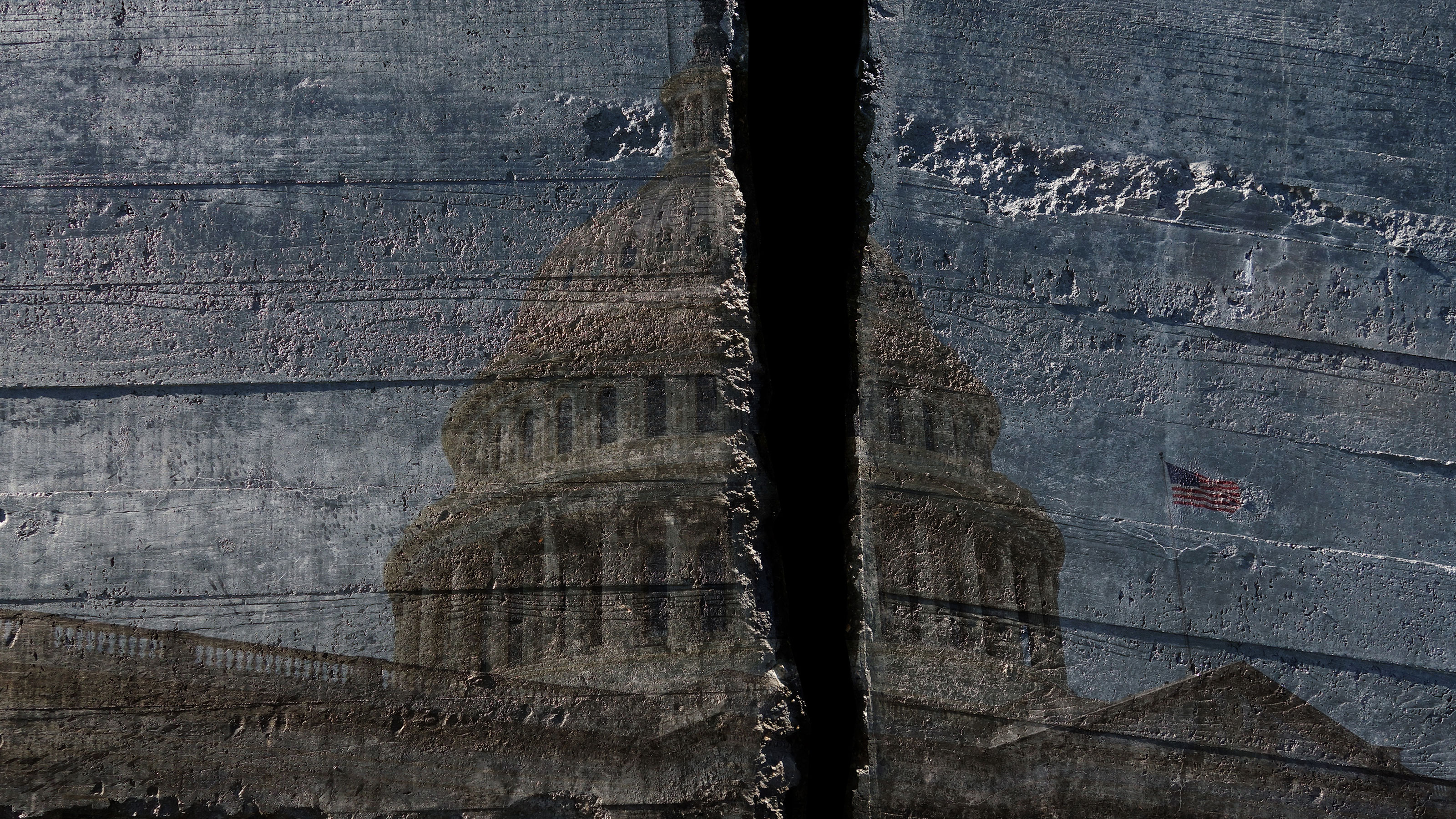Congress is Busy. And Dysfunctional.
With important must-pass legislation up against intraparty fighting, the question is whether dysfunction or democracy will win.


Profit and prosper with the best of Kiplinger's advice on investing, taxes, retirement, personal finance and much more. Delivered daily. Enter your email in the box and click Sign Me Up.
You are now subscribed
Your newsletter sign-up was successful
Want to add more newsletters?

Delivered daily
Kiplinger Today
Profit and prosper with the best of Kiplinger's advice on investing, taxes, retirement, personal finance and much more delivered daily. Smart money moves start here.

Sent five days a week
Kiplinger A Step Ahead
Get practical help to make better financial decisions in your everyday life, from spending to savings on top deals.

Delivered daily
Kiplinger Closing Bell
Get today's biggest financial and investing headlines delivered to your inbox every day the U.S. stock market is open.

Sent twice a week
Kiplinger Adviser Intel
Financial pros across the country share best practices and fresh tactics to preserve and grow your wealth.

Delivered weekly
Kiplinger Tax Tips
Trim your federal and state tax bills with practical tax-planning and tax-cutting strategies.

Sent twice a week
Kiplinger Retirement Tips
Your twice-a-week guide to planning and enjoying a financially secure and richly rewarding retirement

Sent bimonthly.
Kiplinger Adviser Angle
Insights for advisers, wealth managers and other financial professionals.

Sent twice a week
Kiplinger Investing Weekly
Your twice-a-week roundup of promising stocks, funds, companies and industries you should consider, ones you should avoid, and why.

Sent weekly for six weeks
Kiplinger Invest for Retirement
Your step-by-step six-part series on how to invest for retirement, from devising a successful strategy to exactly which investments to choose.
With little bipartisan agreement in Congress, it's hard to know what legislation, if any, stands a chance at passage. To help you understand what is going on and what we expect to happen in the future, our highly experienced Kiplinger Letter team will keep you abreast of the latest developments and forecasts (Get a free issue of The Kiplinger Letter or subscribe). You'll get all the latest news first by subscribing, but we will publish many (but not all) of the forecasts a few days afterward online. Here’s the latest…
Congress can be summed up in two words: Busy, with some important must-pass items dominating an already crowded legislative calendar. And dysfunctional, as intraparty fighting escalates, particularly among House Republicans. The question is whether dysfunction will win.
Lawmakers must first fund the government. Several agencies will shut down on March 1. The rest will run out of money on March 8, unless Congress takes action. Lawmakers have already resorted to three temporary spending bills since the start of the 2024 fiscal year, which began on October 1. Expect Congress to avert a government shutdown, but not easily. They have little time left, and many members of both the House and Senate will be out of town on recess until later this month. That makes another stopgap funding bill more likely. Most lawmakers are eager to avoid a shutdown in an election year however, the political dynamics make even such a popular move a difficult prospect.
From just $107.88 $24.99 for Kiplinger Personal Finance
Become a smarter, better informed investor. Subscribe from just $107.88 $24.99, plus get up to 4 Special Issues

Sign up for Kiplinger’s Free Newsletters
Profit and prosper with the best of expert advice on investing, taxes, retirement, personal finance and more - straight to your e-mail.
Profit and prosper with the best of expert advice - straight to your e-mail.
Keep an eye on Rep. Mike Johnson (R-LA), the speaker of the House, for now. Johnson has struggled to restore House Republican unity since taking the job last year, a difficulty compounded by the party’s razor-thin, two-vote cushion in the chamber. The speaker has frequently kept even top lieutenants in the dark about big decisions, and we may not know what course of action he’ll take until the last possible moment. Look for Johnson to do what he can to keep the GOP rank and file happy, as evidenced by the House’s recent impeachment of Alejandro Mayorkas, secretary of Homeland Security. The Senate is unlikely to convict Mayorkas and remove him from office, but the move won favor from many hard-line House Republicans.
The speaker will stonewall most major legislation now under consideration. This includes a bipartisan bill to provide military aid to Ukraine and Israel, which appears to be dead — with or without a Senate deal to boost border security — though Johnson could still surprise us. Any stand-alone border bill will certainly fail.
Also in limbo: A reauthorization and reform of federal surveillance powers under Section 702 of the Foreign Intelligence Surveillance Act. This authority, which will expire in April without congressional action, allows Uncle Sam to spy on foreign nationals in certain circumstances. Critics complain that communications of U.S. citizens are often swept up in the process. A compromise appears unlikely.
As these issues consume Capitol Hill, meanwhile, a host of lower profile, bipartisan proposals sit indefinitely on the back burner. These include an effort to refund the Affordable Connectivity Program, a COVID-era initiative that provides wireless internet for low-income households. And a bipartisan railway safety bill inspired by last year’s Norfolk Southern train derailment in Ohio. One bill that may break through the logjam: A bipartisan tax package, that would revive several business tax credits and expand the child tax credit. But lawmakers will stop legislating by late spring to focus on campaigning.
This first appeared in The Kiplinger Letter, which has been running since 1923 and is a collection of concise weekly forecasts on business and economic trends, as well as what to expect from Washington, to help you understand what’s coming up to make the most of your investments and your money. Subscribe to The Kiplinger Letter.
Related Content
- Another Government Shutdown Threat Looms As Lawmakers Break For Recess
- Current Challenges Highlight U.S. Foreign Policy Weakness: The Kiplinger Letter
- Republicans vs Republicans, the Widening Division: The Kiplinger Letter
- After Weeks Without a Speaker, Congress Finally Returns to Legislating: The Kiplinger Letter
- Democrats and Republicans Sidestep Tensions In Their Parties: The Kiplinger Letter
Profit and prosper with the best of Kiplinger's advice on investing, taxes, retirement, personal finance and much more. Delivered daily. Enter your email in the box and click Sign Me Up.

Sean Lengell covers Congress and government policy for The Kiplinger Letter. Before joining Kiplinger in January 2017 he served as a congressional reporter for eight years with the Washington Examiner and the Washington Times. He previously covered local news for the Tampa (Fla.) Tribune. A native of northern Illinois who spent much of his youth in St. Petersburg, Fla., he holds a bachelor's degree in English from Marquette University.
-
 Now Is the Time to Start Designing Your 2027 Retirement
Now Is the Time to Start Designing Your 2027 RetirementThis is when you should be shifting your focus from growing your portfolio to designing an income and tax strategy that aligns your resources with your purpose.
-
 Reduce Stress With a Layered Approach for Your Retirement Money
Reduce Stress With a Layered Approach for Your Retirement MoneyTo be confident about retirement, consider building a safety net by dividing assets into distinct layers and establishing a regular review process. Here's how.
-
 The New Reality for Entertainment
The New Reality for EntertainmentThe Kiplinger Letter The entertainment industry is shifting as movie and TV companies face fierce competition, fight for attention and cope with artificial intelligence.
-
 Trump Reshapes Foreign Policy
Trump Reshapes Foreign PolicyThe Kiplinger Letter The President starts the new year by putting allies and adversaries on notice.
-
 Congress Set for Busy Winter
Congress Set for Busy WinterThe Kiplinger Letter The Letter editors review the bills Congress will decide on this year. The government funding bill is paramount, but other issues vie for lawmakers’ attention.
-
 The Kiplinger Letter's 10 Forecasts for 2026
The Kiplinger Letter's 10 Forecasts for 2026The Kiplinger Letter Here are some of the biggest events and trends in economics, politics and tech that will shape the new year.
-
 Special Report: The Future of American Politics
Special Report: The Future of American PoliticsThe Kiplinger Letter The Political Trends and Challenges that Will Define the Next Decade
-
 Are New Trump $2,000 Stimulus Payments Coming in 2026? What to Know Now
Are New Trump $2,000 Stimulus Payments Coming in 2026? What to Know NowTax Policy A promise of $2,000 tariff dividend checks is raising questions and fueling confusion.
-
 What Services Are Open During the Government Shutdown?
What Services Are Open During the Government Shutdown?The Kiplinger Letter As the shutdown drags on, many basic federal services will increasingly be affected.
-
 Banks Are Sounding the Alarm About Stablecoins
Banks Are Sounding the Alarm About StablecoinsThe Kiplinger Letter The banking industry says stablecoins could have a negative impact on lending.
-
 Trump's Economic Intervention
Trump's Economic InterventionThe Kiplinger Letter What to Make of Washington's Increasingly Hands-On Approach to Big Business